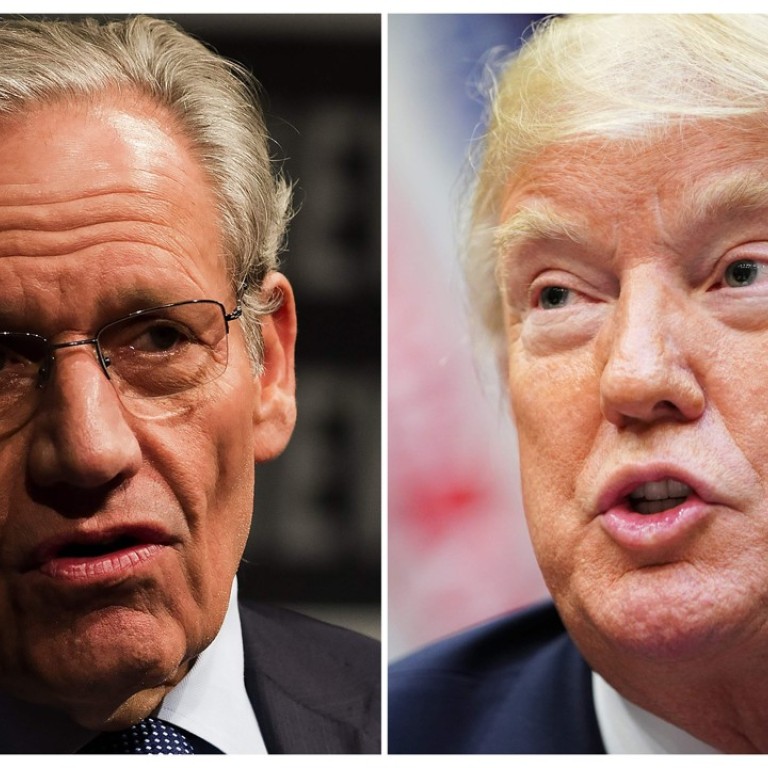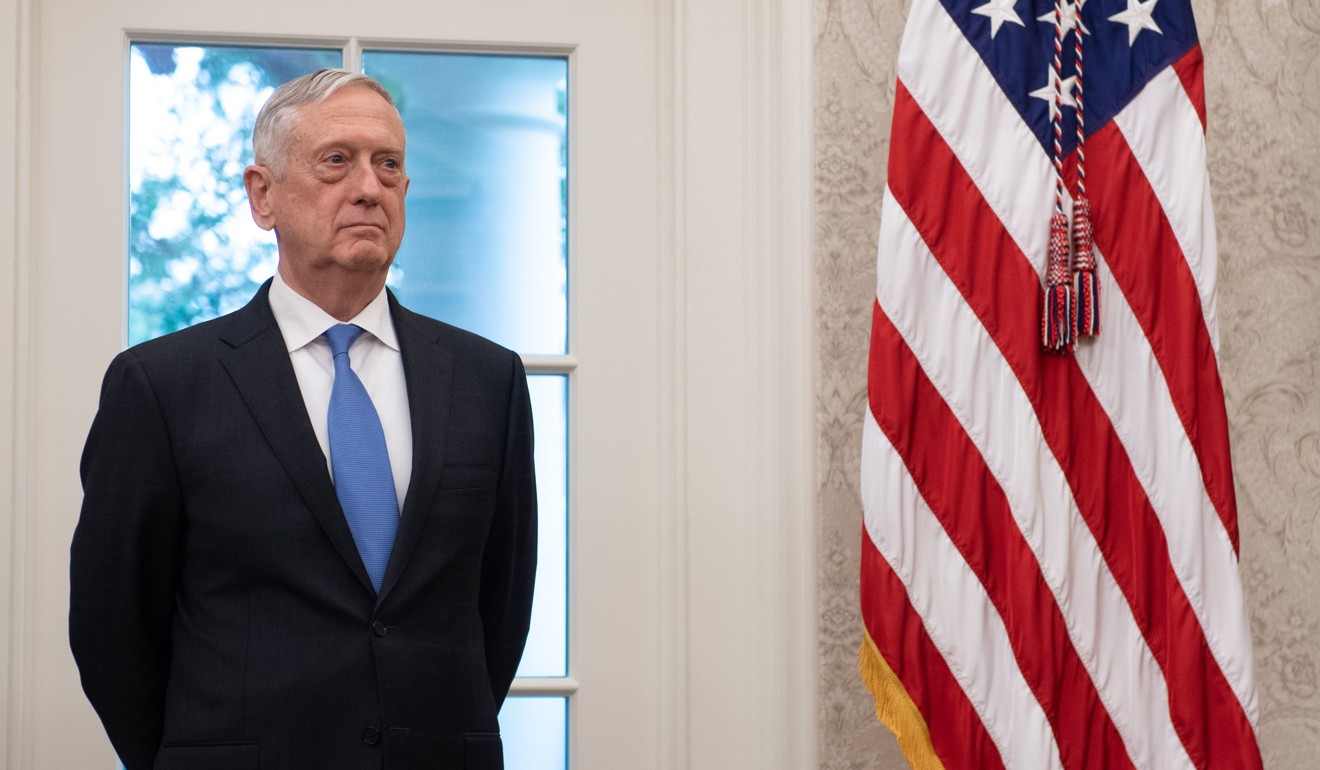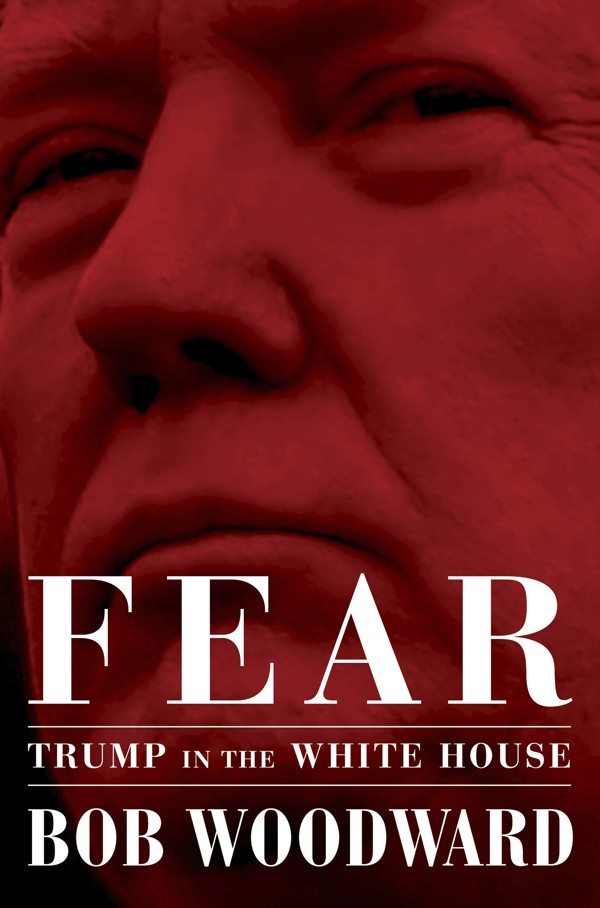
Aides ‘appalled’ by Donald Trump’s ignorance on Korea stole letter from his desk, damning new Bob Woodward book says
Award-winning journalist Bob Woodward depicts a White House inner circle alarmed by an unpredictable and incurious president
US President Donald Trump’s aides had to steal a letter on South Korea from his desk to avoid jeopardising a top-secret programme and explain how removing US troops from the country could lead to world war three, such is the president’s ignorance, a new book has reportedly revealed.
Trump did not understand the need for a special intelligence operation in South Korea that allows the US to detect a North Korean missile launch within just seven seconds, versus 15 minutes from Alaska, said The Washington Post, citing veteran journalist Bob Woodward’s upcoming book, Fear: Trump in the White House.
Former top economic adviser Gary Cohn so feared that the programme would be at risk if Trump signed a letter formally withdrawing the US from a South Korean trade agreement that he stole the letter from the Oval Office desk, said CNN, which also obtained a copy of Woodward’s book.
“Appalled” by the possibility of Trump signing the letter, Cohn told an associate that he snatched it in an effort to prevent the president from seeing it, the book recounts.
“I wouldn't let him see it. He's never going to see that document. Got to protect the country,” the book quotes Cohn as saying.
Woodward, an associate editor at The Washington Post, describes Trump’s lack of curiosity and knowledge about world affairs and his contempt for the mainstream perspectives of military and intelligence leaders in the 448-page book, which is based on interviews with administration officials and other principals, the Post said.
The book describes a National Security Council meeting on January 19 in which Trump questioned the necessity of the US military presence in South Korea, along with the early warning system to detect a North Korean missile and even the need to spend resources in the region at all.
Defence Secretary James Mattis told him, “We’re doing this in order to prevent world war three.”
After Trump left the meeting, Woodward recounts, “Mattis was particularly exasperated and alarmed, telling close associates that the president acted like – and had the understanding of – ‘a fifth- or sixth-grader’.”

At a meeting on July 27, 2017, at the Pentagon, national security leaders tried to educate Trump about the importance of allies and diplomacy but discovered that Trump’s philosophy about diplomacy was merely personal.
“This is all about leader versus leader. Man versus man. Me versus Kim,” Trump said of North Korean leader Kim Jong-un.

“So Mr President,” Cohn asked Trump, according to CNN, “what would you need in the region to sleep well at night?”
“I wouldn’t need a thing,” Trump is reported to have responded, using an expletive. “And I'd sleep like a baby.”
After Trump left the room, Rex Tillerson, who was then US secretary of state, declared, using the same expletive: “He's a moron.”
Woodward’s book is based on hundreds of hours of taped interviews and dozens of sources in Trump's inner circle, along with documents, memos and diaries, CNN said. The author spoke with sources on “deep background”, meaning he could use the information but not say who provided it.

Trump called Woodward in early August, after the manuscript had been completed, to say he wanted to participate, the Post said.
When Woodward told him that he had spoken to multiple White House aides about interviewing the president, Trump said that no one had told him, and then complained that it would be a “bad book”, according to an audio recording of the conversation released by the Post.
Xi to send right-hand man Li Zhanshu to North Korea in ‘goodwill message to Trump’
Woodward replied that his work would be “tough” but factual and based on his reporting.
When asked about Fear, White House press secretary Sarah Huckabee Sanders said on Tuesday: “This book is nothing more than fabricated stories, many by former disgruntled employees, told to make the president look bad.”
Meanwhile, Mattis was quoted in a tweet by Defense One executive editor Kevin Baron as saying: “The contemptuous words about the Pres. attributed to me in Woodward's book were never uttered by me or in my presence. While I generally enjoy reading fiction, this is a uniquely Washington brand of literature, and his anonymous sources do not lend credibility.
“In serving in this administration, the idea that I would show contempt for the elected Commander-in-Chief, President Trump, or tolerate disrespect to the office of the President from within our Department of Defense, is a product of someone's rich imagination.”
Woodward has won two Pulitzer Prizes, including one with Carl Bernstein for their coverage of the Watergate scandal that brought down President Richard Nixon in 1974. He has also published powerful and often embarrassing insider books on the administrations of George W. Bush and Barack Obama.
Fear: Trump in the White House is scheduled for publication on September 11.

